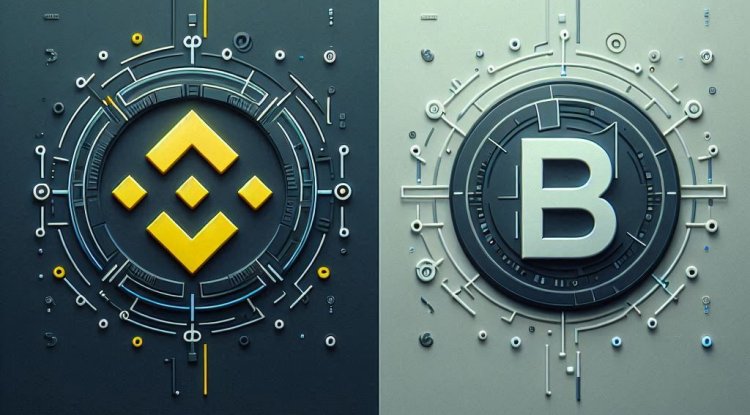Crypto IQ: A Beginner’s Guide to Understanding Cryptocurrency
Learn what Crypto IQ is and why it's essential in the world of digital currencies. Discover the importance of understanding blockchain, wallets, crypto trading, and security measures. Whether you're an investor, trader, or beginner, improving your Crypto IQ will help you make informed decisions and protect your assets in the ever-evolving cryptocurrency landscape.

What is Crypto IQ?
Crypto IQ refers to an individual's understanding of cryptocurrencies and blockchain technology. It includes knowledge about various coins, the mechanics of digital transactions, trading strategies, and security measures. As cryptocurrencies like Bitcoin, Ethereum, and others gain global attention, understanding their nuances becomes essential. Whether you’re an investor or simply curious about the tech, a strong Crypto IQ can make all the difference.
The Rise of Cryptocurrency
Cryptocurrency began as a niche concept with Bitcoin’s debut in 2009. Back then, it was seen as a radical idea, a decentralized currency that didn’t rely on traditional financial institutions. Fast forward to today, and the landscape has changed drastically. Cryptocurrencies are no longer just a speculative investment; they’re a central part of global finance.
Thousands of altcoins, or alternative cryptocurrencies, have emerged, each with its unique features. This explosion of digital currencies has opened up new opportunities across industries, including finance, technology, and even art. But to make sense of this expanding ecosystem, you need a solid Crypto IQ.
Why Is Crypto IQ Important?
A high Crypto IQ is crucial for making informed decisions in the digital asset space. Without it, investors may fall prey to scams, experience security breaches, or make poor financial choices. For traders, understanding market trends, patterns, and risks can help mitigate the volatility that is common in cryptocurrency markets.
A well-rounded Crypto IQ helps with:
- Making informed decisions: Knowing when to buy, sell, or hold can be the difference between profit and loss.
- Protecting against scams: The crypto world is rife with fraudulent schemes. With a strong Crypto IQ, you’ll recognize and avoid them.
- Navigating market volatility: Cryptocurrencies can fluctuate dramatically. Understanding market forces helps you stay calm during downturns and avoid panic selling.
Blockchain: The Foundation of Cryptocurrency
Blockchain is the technology that underpins most cryptocurrencies. Think of it as a digital ledger, where every transaction is recorded in a block and linked to the previous one. This decentralized, transparent, and immutable system ensures that no single entity can manipulate the data, making it secure and trustworthy.
The decentralized nature of blockchain is what makes it so appealing. It doesn’t rely on banks or governments to validate transactions, which lowers costs and reduces risks of corruption. By grasping blockchain’s core concepts, you elevate your Crypto IQ significantly.
Types of Cryptocurrencies
- Bitcoin (BTC): The original cryptocurrency, often referred to as "digital gold." Bitcoin’s limited supply and deflationary nature make it a store of value.
- Ethereum (ETH): Known for its smart contract capabilities, Ethereum enables decentralized applications (dApps) to run on its blockchain.
- Litecoin (LTC): Created as a “lighter” version of Bitcoin, it offers faster transaction speeds.
- Ripple (XRP): Primarily used for cross-border payments, Ripple’s main selling point is its low transaction fees and speed.
Understanding the unique characteristics of these cryptocurrencies can help you decide where to invest and how to leverage them in your portfolio.
The Role of Crypto Wallets
A crypto wallet is essential for securing your digital assets. These wallets allow you to store and manage your cryptocurrencies. There are two main types:
- Hot Wallets: Connected to the internet, these are more convenient but less secure.
- Cold Wallets: Offline wallets, such as hardware wallets, that offer better security for long-term storage.
Choosing the right wallet is vital for safeguarding your investments. Whether you’re trading frequently or holding coins for the long haul, make sure your wallet suits your needs.
Crypto Trading and Investment
Crypto trading involves buying and selling digital currencies to make a profit. It’s essential to understand market trends, use technical analysis, and develop strategies to succeed in this volatile space. Some popular exchanges where you can trade cryptocurrencies include Coinbase, Binance, and Kraken.
Before diving into trading, it’s essential to:
- Do thorough research
- Set a budget and risk tolerance
- Develop an entry and exit strategy
Security Measures to Enhance Your Crypto IQ
The crypto world is rife with risks. Hacks, phishing attacks, and fraud are common, so security should be a top priority. Here are some best practices:
- Use 2FA: Two-factor authentication adds an extra layer of protection to your accounts.
- Keep your software updated: Regular updates help defend against vulnerabilities.
- Store private keys securely: Avoid keeping them online; use hardware wallets for long-term storage.
The Future of Cryptocurrency
The future of cryptocurrency looks bright but uncertain. New technologies, such as DeFi (Decentralized Finance) and NFTs (Non-fungible Tokens), are rapidly expanding what blockchain can do. Governments worldwide are working on regulations, and these regulations will likely shape the future of crypto.
Keeping up with these trends and staying informed will help you maintain a high Crypto IQ.
Conclusion
In today’s rapidly evolving world of digital currencies, maintaining a high Crypto IQ is more important than ever. Whether you’re just starting or have been involved in crypto for years, understanding the fundamentals of blockchain, wallets, and cryptocurrencies will put you in a stronger position to succeed. Stay informed, stay safe, and embrace the future of finance.
FAQs
-
What are the risks of investing in cryptocurrency?
Cryptocurrencies are highly volatile, and there is a risk of losing money. Scams and fraud are also prevalent in the space. -
How can I improve my Crypto IQ?
Educate yourself about blockchain, different types of cryptocurrencies, and trading strategies. Practice with small investments and always stay updated with the latest news. -
What is the difference between Bitcoin and Ethereum?
Bitcoin is primarily used as a store of value, while Ethereum is a decentralized platform that supports smart contracts and decentralized applications. -
What is a hardware wallet, and why should I use one?
A hardware wallet is an offline storage device that secures your cryptocurrency. It’s more secure than online wallets and ideal for long-term storage. -
Will cryptocurrency replace traditional currencies in the future?
While cryptocurrencies are gaining popularity, it’s uncertain if they will fully replace traditional currencies. However, they will likely continue to coexist and offer alternative forms of payment.
What's Your Reaction?





















